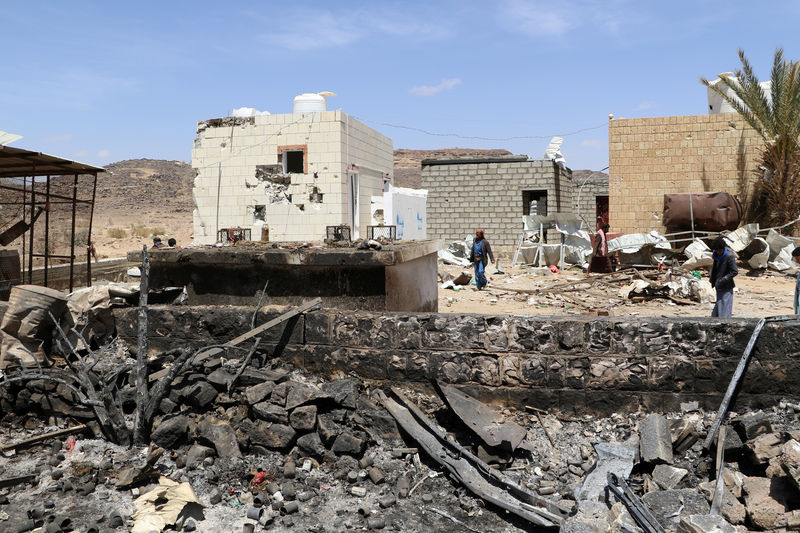By Patricia Zengerle
WASHINGTON (Reuters) - The U.S. Senate on Thursday sustained President Donald Trump's veto of a resolution demanding an end to military support for the Saudi-led coalition waging war in Yemen, in a victory for the White House's policy of continued backing for the kingdom.
The vote was 53 to 45, falling short of the two-thirds majority needed to override a veto, despite a handful of Trump's fellow Republicans joining Democrats in backing the war powers resolution.
It was only the second veto of Trump's presidency, both this year. Neither has garnered the two-thirds support in both the Senate and the House of Representatives needed to override.
The resolution's passage earlier this year marked the first time both the Senate and House supported the provision of the War Powers Act limiting the president's ability to send troops into action without congressional authorization.
Backers of the resolution said they wanted to reassert Congress' constitutional power to declare war, and send a strong message to Saudi Arabia about the devastating civilian toll of the four-year-long civil war in Yemen.
"We've been materially assisting a foreign power in its efforts to bomb its adversaries. And sometimes helping that foreign power to bomb innocent civilians on the ground in the process," Republican Senator Mike Lee, a co-sponsor of the resolution, said before the vote.
The war in Yemen, which pits Saudi Arabia and the United Arab Emirates against Houthi rebels backed by Iran, has killed tens of thousands of people and spawned what the United Nations calls the world's most dire humanitarian crisis, with the country on the brink of famine.
Many members of Congress have also become increasingly frustrated with Saudi Arabia over its human rights record, anger fueled by the murder at a Saudi consulate in Turkey last year of journalist Jamal Khashoggi, a U.S. resident and columnist for the Washington Post.
Saudi officials have rejected accusations that Crown Prince Mohammed bin Salman ordered the killing.
Resolution opponents argued that support for the Saudi-led coalition was not an appropriate use of the War Powers Act, because the military provides supports such as targeting assistance, not troops.
"The premise of this resolution is fundamentally flawed and I believe a misrepresentation of what is happening on the ground in Yemen," Republican Senator Jim Risch said before the vote.
Risch, chairman of the Foreign Relations Committee, is writing legislation to address the situation with Saudi Arabia.
He declined to discuss possible specific provisions of the measure, but said he hoped to introduce it in May with the goal of finding something that could pass both the Republican-controlled Senate and Democratic-controlled House and be signed, not vetoed, by Trump.

Amid U.S. and international anger over the civilian toll of the Yemen conflict, the Trump administration last year stopped providing refueling support for Saudi aircraft in Yemen.